All Stories
-
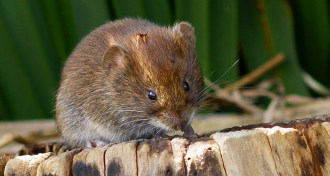 Genetics
GeneticsBank voles provide clue to prion disease susceptibility
A protein from bank voles makes mice susceptible to disorders that wouldn’t otherwise infect them.
-
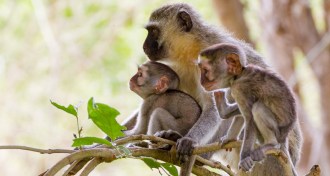 Animals
AnimalsYoung vervet monkeys look to mom when learning
Among vervet monkeys (Chlorocebus aethiops), behaviors are passed from mother to child, a new study finds.
-
 Earth
EarthSeismic signals chronicle deadly landslide
Washington state’s deadly Oso landslide was recorded in seismic waves.
By Erin Wayman -
 Animals
AnimalsThe Thing With Feathers
In the new book, "The Thing With Feathers," Noah Strycker brings people nose to beak with the plumed creatures he knows so well.
-
 Quantum Physics
Quantum PhysicsU.S. marches to tick of new clock
The atomic clock NIST-F2 has launched as the country’s official civilian time and frequency standard.
-
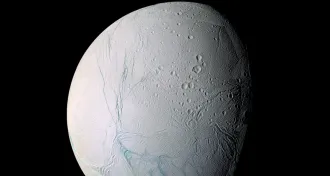 Planetary Science
Planetary ScienceSubsurface sea hides below ice of Saturn moon
Astronomers add to evidence for a subsurface ocean on Enceladus using subtle variations in the moon’s gravity.
-
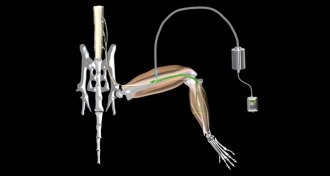 Neuroscience
NeuroscienceParalyzed mouse legs move with burst of light
Neural patch makes leg muscles twitch in paralyzed mice when blue light shines.
-
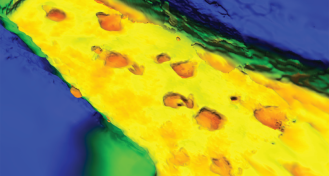 Paleontology
PaleontologyFootprints of dino chase digitally reconstructed
Footprints of a T. rex-type dinosaur chasing an Apatosaurus-like animal have been turned into a 3-D fly-through, giving researchers a way to verify maps of the tracks drawn 70 years ago. (includes video)
-
 Animals
AnimalsPandas enjoy the sweet life
Unlike many of their carnivore relatives, bamboo-loving pandas can taste natural, and some artificial, sugars.
-
 Computing
ComputingA tale of touching tubes
Mathematicians solve the challenge of putting seven cylinders in contact without using their ends.
-
 Anthropology
AnthropologyBronze Age herders spread farming around Asia
Ancient seeds indicate that Central Asian animal raisers had an unappreciated impact on early agriculture.
By Bruce Bower -
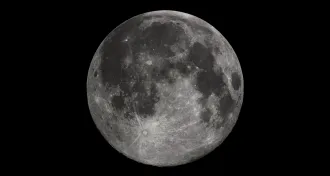 Planetary Science
Planetary ScienceMoon gets younger age estimate
The moon may have formed about 95 million years after the birth of the solar system, up to 70 million years later than some scientists previously predicted.